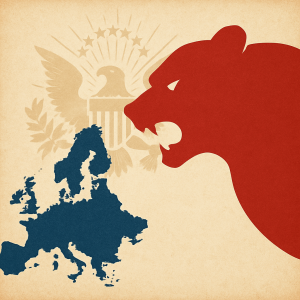The question is far from being illegitimate. Why, many of our fellow citizens ask, should we replace tried and tested national democracies with an unfinished entity whose borders are shifting and whose institutions are so poorly known?
For a long time, the answer was that it was necessary to get out of a thousand years of European civil wars, but as no one imagines – wrongly, but that is how it is – that war could be revived in Europe, this answer is no longer convincing.
So it is no longer with the arguments of yesterday that we must respond to Euroscepticism but with those of the present, whose challenges are just as formidable as those of the past.
On the podium of powers, the Union now sits alongside China and the United States. Between these three champions of the international competition, the order varies according to the fields and the years, but the certainty is that time is against us, that Washington and Beijing will soon leave us behind and that, allied with Europeans in their retreat, the Americans might have to bow down to China.
On that day, we would count for no more than a large Switzerland and could become even more dependent on the Chinese dictatorship than on the American democracy.
We can resign ourselves to this, but for all those who refuse to do so, for all democrats and all those who do not want to give up the model of solidarity and social protection which, as much as its culture, defines Europe, for the overwhelming majority, in a word, of the citizens of the 27 countries of the Union, the time has come to close ranks to consolidate and reinforce our forces.
This is obvious, but how can we do this when it will be even more difficult to unify our foreign policies, our armies and our industries than it has been to unite our markets and our currencies? That is why a Conference on the Future of Europe opened in Strasbourg on Sunday, but the it will be a lot of work for precious little and the failure will be even more bitter, if we do not commit ourselves to creating and inventing together rather than trying to beat hard-boiled eggs into an omelette, to fit into a single mould what already exists in 27 models.
It is not a question of creating identical health services and pension and unemployment funds, but of inventing the social protection of this new wage-earning class of individual workers and of putting in place the means to fight together against the outbreak of new pandemics. It is not about simply linking our universities in a network but about creating a dozen European campuses of excellence capable of competing with the largest American universities and of creating around them a fabric of research centres and new industries without which we will miss the turning point of artificial intelligence, just as we missed the computer revolution.
It is not about that impossible task of creating a European army from 27 national armies but about creating together the weapons of the future, the weapons of space, computer and information wars. It is not about just better coordinating our public prosecutors and our police and intelligence services, but about creating common agencies to respond to new, all-international forms of crime, espionage and subversion. It is not about reinventing the public services in the form which declined everywhere, but about setting new common standards for the presence of public power in all regions, whatever their population level.
It is by creating together that we will go further, faster, that we will remain on the stage and assert our rank there, that we will make the best use of the talents of the Union and no longer of 27 different States, that we will form this nation which is after all no more dispersed but just as united as Germany and Italy were not such a long time ago, when they had not yet achieved their unity.



